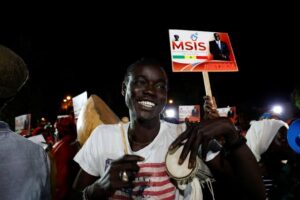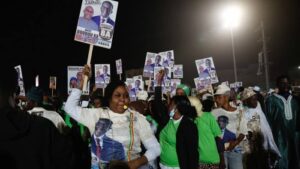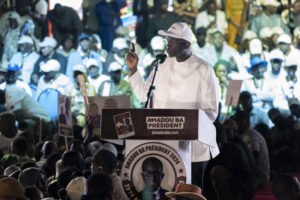Senegal braces for a pivotal moment as citizens flock to the polls on Sunday, marking a delayed presidential election overshadowed by political unrest and fervent opposition. The nation, known for its stability in a region prone to coups, finds itself at a crossroads as it seeks its fifth president amidst a backdrop of economic discontent and social turbulence.
With the impending departure of President Macky Sall, who has faced backlash over his handling of opposition leaders and suspicions of term extension ambitions, Senegal faces a critical juncture in its democratic journey. Sall, not on the ballot for the first time in the nation’s history, leaves behind a legacy of both economic growth and simmering dissent.
Nineteen contenders vie for the presidency, each offering their vision for the nation’s future. Former Prime Minister Amadou Ba, endorsed by Sall’s ruling coalition, champions continuity and stability in the face of uncertainty. However, opposition figures like Bassirou Diomaye Faye, backed by the outspoken Ousmane Sonko, pose formidable challenges to the status quo.
Also, read: Ethiopian Bank Scrambles to Recover Millions Lost in Technical Glitch
The election is not merely a contest of personalities but a referendum on Senegal’s trajectory. With economic woes plaguing the populace, exacerbated by the COVID-19 pandemic, voters seek a leader who can navigate the nation towards prosperity while addressing systemic challenges.
Despite the absence of opinion polls, analysts anticipate a close race, potentially leading to a runoff. The outcome will shape Senegal’s political landscape for years to come, determining its stance on issues ranging from economic policy to social justice.

As the ballots are cast and the votes tallied, Senegal stands on the cusp of change. The world watches closely as its citizens exercise their democratic rights, hoping for a peaceful transition and a brighter future for the nation and its people.

